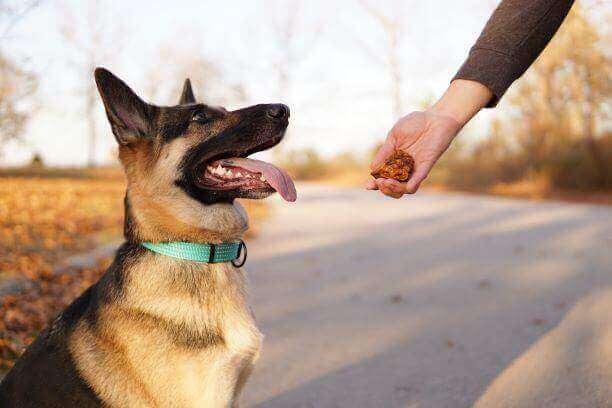
5 Ways to Win the Fight Against Bad Dog Breath
Doggie Breath: Combat the Funk!
Let’s face it, there’s nothing worse than a case of bad doggie breath! If you find yourself pushing away your best friend’s kisses because of his breath, maybe it’s time to do something about it.
So, what exactly causes doggie breath? The diagnosis usually ranges between dental and gum disease to plaque and bacteria buildup. In some more serious cases, persistent bad breath could indicate larger medical problems in the mouth, respiratory system, gastrointestinal tract or organs.
The good news is that fighting doggie breath isn’t as daunting as it may seem. Here are some suggestions to help you identify the possible cause and some tools to combat the funk!
1. Hard Dental Chewing Treats
To begin, try getting rid of your dog’s bad breath by giving him hard, safe dental dog chews. These treats often feature a rubbery texture, to allow the dog’s teeth to sink in and more effectively clean and stimulate the gums. A toothpaste-like formula can also help freshen breath and most dogs love the minty taste.
2. Brush, Brush, Brush
Perhaps one of the more obvious solutions to getting rid of your dog’s unpleasant breath is to brush his teeth. This can take some time and patience so be gentle and don’t get discouraged if you don’t get to brush all the teeth on your first attempt. To properly brush, lift his upper lip, hold the toothbrush at a 45-degree angle to the gum line, and move it back and forth across the teeth. Give some extra love to the upper teeth and gums. Repeat this every day.
3. Digestive Foods
Oftentimes the cause of doggie breath lies in poor food digestion, so feed your dog foods that are of high quality and easy to digest. Low-quality food is one of the leading causes of bad breath in dogs. Look at your food. Lean meats aid in digestion and are also healthy choices for your precious pup.
4. Mouth Check
If you open your dog’s mouth and see a sea of gum discoloration, chipped teeth, or ulcers, chances are the causes for the bad breath are related to dental issues. Gums should be pink, show no indication of swelling, and should be clean with no brown residue. If you notice any of these issues, visit your veterinarian for a checkup to make sure there is no serious underlying issue.
5. Dill Water
Your pup’s breath may not smell like a field of roses, but that doesn’t mean you can’t make it a little less offensive. Add a few drops of dill infusion to your pup’s drinking water to reap the benefits of the herb’s antibacterial properties.
While these ideas may not correct the breath problem completely, they should help. If you try all of the above and rule out any serious medical issues you may just have to plug your nose and enjoy the kisses. They’re coming from a place of love!
All data and information provided on this site is for informational purposes only and reflect the views of the authors alone, and do not necessarily reflect those of the organization. Redbarn.com makes no representations as to accuracy, completeness, timeliness, suitability, or validity of any information on this site and will not be liable for any errors, omissions, or delays in this information or any losses, injuries, or damages arising from its display or use. All information is provided on an as-is basis. Please note that each situation is different, and you should always consult your veterinarian should you have any questions about your pet’s health.


